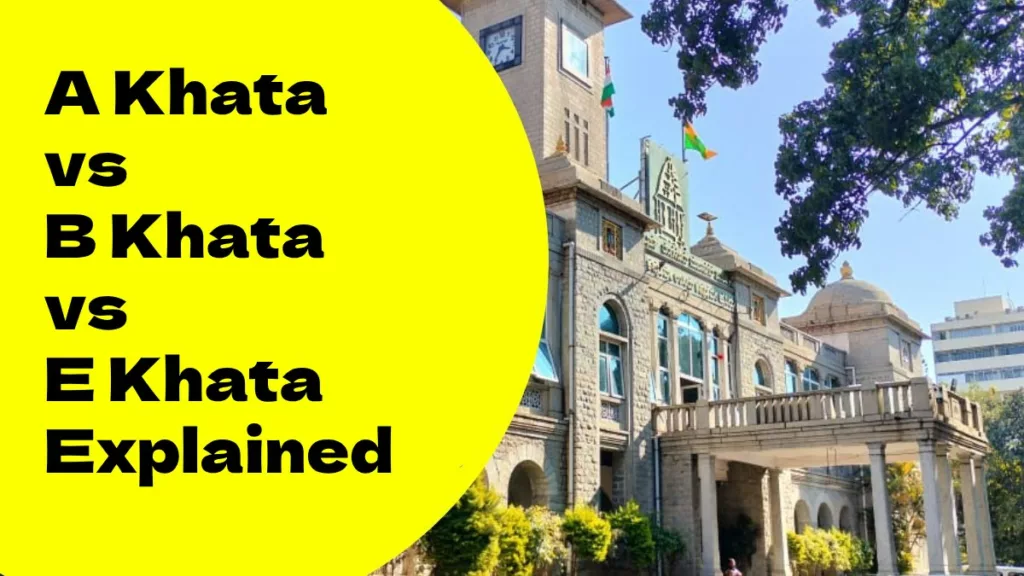In Karnataka, especially in Bengaluru, the term Khata plays a pivotal role in property ownership, taxation, and legal compliance. Whether you’re buying, selling, or inheriting property, understanding the types of Khata—A Khata, B Khata, and E Khata—is essential to avoid legal hurdles and ensure smooth transactions.
What Is A Khata?
A Khata is an official document issued by the Bruhat Bengaluru Mahanagara Palike (BBMP) or other local municipal bodies. It certifies that a property is registered for tax purposes and includes details like:
- Owner’s name
- Property size and location
- Built-up area
- Tax assessment and payment history
- Property identification number (PID)
Khata is mandatory for obtaining building permits, trade licenses, loans, and utility connections.
Types of Khata
A Khata
Issued for properties that comply with all building bylaws, zoning regulations, and tax norms.
Benefits:
- Eligible for loans from banks and NBFCs
- Can obtain building plan approvals and trade licenses
- Property can be legally sold or transferred
- Access to civic amenities like water and electricity
B Khata
Definition: Issued for properties that violate building regulations or are built on revenue land without proper approvals.
Limitations:
- Not eligible for loans or trade licenses
- Cannot obtain building permits
- Property resale or transfer is legally restricted
- Considered semi-legal or illegal by BBMP
E Khata
Definition: Digital version of A Khata, introduced to streamline property tax payments and documentation.
Features:
- Online access to property records
- Convenient tax payments via BBMP’s portal
- Valid for legal transactions if based on A Khata
How to Convert B Khata to A Khata
If your property is listed under B Khata, converting it to A Khata is crucial for legal recognition and financial flexibility.
Conversion Steps:
- Clear Outstanding Property Taxes: Ensure all dues are paid.
- Pay Betterment Charges: Typically 0.5%–1.5% of the property’s market value.
- Submit Application: Apply at the BBMP office or online via the Sakala portal.
- Verification: BBMP officials will inspect the property for compliance.
- Approval & Issuance: Upon successful verification, A Khata is issued.
Documents Required for Khata Registration or Transfer
Whether you’re registering a new property or transferring ownership, the following documents are essential:
Common Documents:
- Sale deed (attested copy)
- Latest property tax receipts
- Encumbrance Certificate (Form 15)
- Building plan approval (if applicable)
- Possession certificate
- Property sketch with measurements
- Identity proof (Aadhaar, PAN, etc.)
Additional Documents Based on Scenario:
- Inheritance: Will, death certificate, family tree, NOC from heirs
- Gift: Gift deed, previous title deed
- Court Decree: Court order, previous title deed
- Partition: Partition deed, tax receipts
How to Apply for E Khata
- Visit the BBMP E-Aasthi portal.
- Fill out the online application form.
- Upload scanned documents.
- Pay applicable fees (usually ₹100 or less).
- Track application status using the acknowledgment number.







